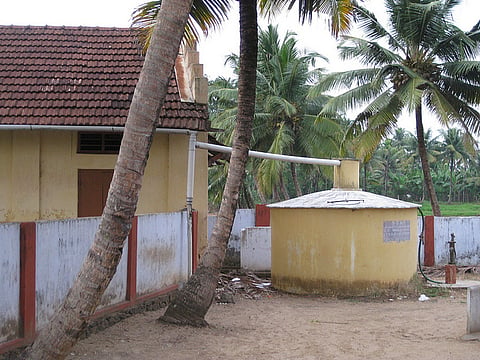

Property owners in Bengaluru will face incremental penalty if they fail to install rain-harvesting units before December 2015.
The Bangalore Water Supply and Sewage Board has decided to make rainwater- harvesting units mandatory for property owners, who own houses built in the year 2009 or earlier and on sites of dimensions of 40x60ft or more.
Times of India reported that owners would have to pay 25% of the water bill as penalty for the first three months and 50% of the bill from the fourth month.
Sources told TOI that the urban development department has accepted BWSSB’s proposal and will soon issue a notice.
TM Vijay Bhaskar told TOI that BWSSB had identified 3,000 properties built on 40x60ft or bigger sites which have not implemented the rainwater-harvesting programme when the board announced guidelines in the year 2009. The same year the board had made water-harvesting units compulsory for houses built on 30x40ft too.
“About 45,000 house owners have complied with the rule. To get others on board, we've mooted the penalty. We are waiting for the government's approval to our proposal. We'll issue a circular soon,” he added.
The newspaper reported that the board plans to conduct a survey again and is sure that there would be thousands of violators.
“During inspections, I found houses built on 30x40ft houses, post 2009, not having RWH in place. This means our officials haven't conducted proper checks. Once the survey is over, we'll take action against the erring officers too,” Bhaskar added.
TOI quoted Naga Bhushan K, a retired bank employee from Vijayanagar in southwest Bengaluru saying “Board’s penalty route won't work if the objective is to fully realize RWH benefits. The BWSSB is focusing on core Bengaluru area where groundwater levels are relatively better. Plus, most properties have a Cauvery connection.”
“The BWSSB must look at developing areas beyond Outer Ring Road where groundwater levels have depleted. Irony is many properties in outbacks don't have a BWSSB water link; how do you levy the penalty then,” he added.
Anupama Kamat, member of Jala Poshan, an NGO working on water conservation, gave the board a thumbs-up. But she too expressed doubts about the penalty system, reported TOI.
“Instead of penalizing property owners where some may prefer to pay fine and continue with violations, the BWSSB must offer incentives to property owners who have installed the apparatus,” she said.
This is an aggregated report from Times of India.